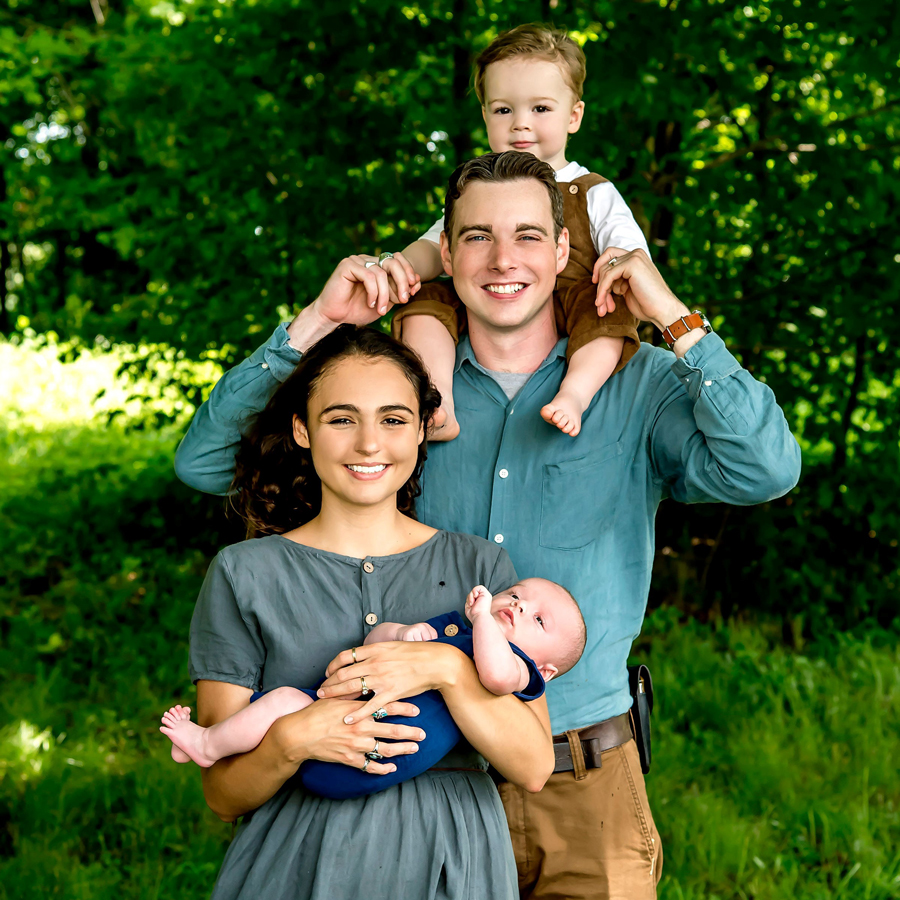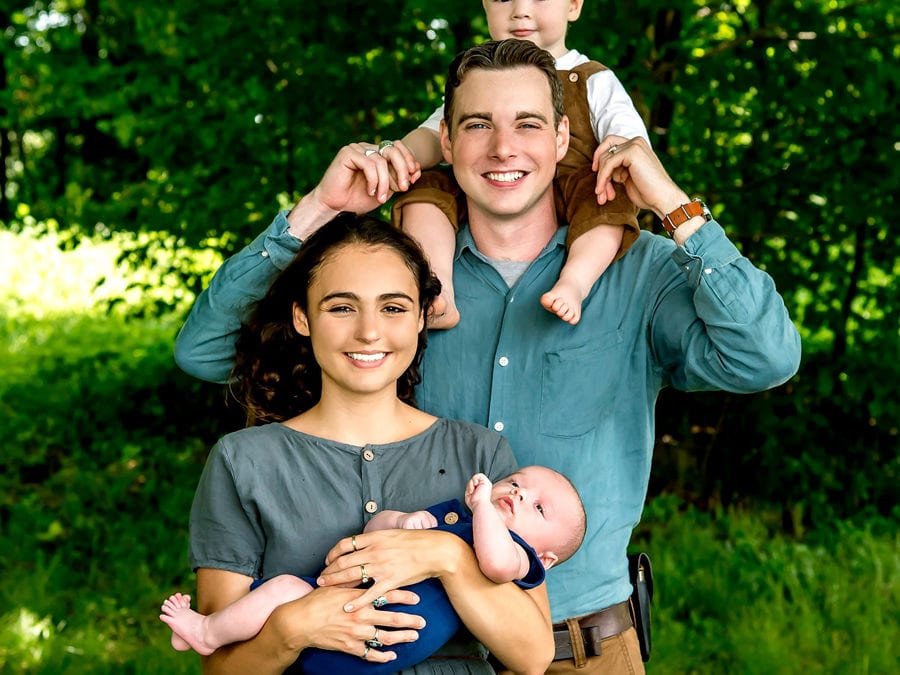When I asked the emergency room doctor if I was going to die, she paused and said, ‘I don’t know.’”
An honest, but harrowing answer for 24-year-old Sarah Grace Richardson. What she didn’t know was that her husband, Thomas, had received the same news with the caveat, “If she does survive, she’ll probably not ever be able to come home and resume a normal life. She will need 24-hour care.”
 Sarah was having a cerebral venous sinus thrombosis (CVST) stroke, a very rare (five in one million) and often deadly occurrence in which the risk factors include pregnancy as well as an inflammatory bowel disease like ulcerative colitis.
Sarah was having a cerebral venous sinus thrombosis (CVST) stroke, a very rare (five in one million) and often deadly occurrence in which the risk factors include pregnancy as well as an inflammatory bowel disease like ulcerative colitis.
Two days earlier, the couple had celebrated the birth of their second child, a healthy little guy they named Everett. And while the pregnancy had been more difficult than the first — Sarah was diagnosed with ulcerative colitis soon after she learned she was expecting — she was young and healthy and looking forward to being a mom of two. If she could just get rid of this headache that had been bothering her for the last several days. Everyone had chalked up the pain to the exhaustion many women feel in the waning days of pregnancy when slumber is fleeting.
But once home in Greensburg the day after delivery, the headache worsened as did the nausea, and she was having difficulty moving. Because Everett was struggling to latch on during breastfeeding, Thomas left to purchase formula, while Sarah took a nap. When she woke up, she couldn’t move the right side of her body at all. Once at the emergency room at Decatur County Memorial Hospital (DCMH), CT scans revealed blood clots on her brain, prompting an immediate ambulance transfer to IU Methodist’s intensive care unit.
And suddenly this young couple was thrust into a life-and-death scenario no one could have imagined. Sarah had numerous blood clots on the brain, complicated by several brain bleeds. An IV drip of blood thinner was the prescribed, but risky, treatment that ultimately worked. Sarah survived but was left a quadriplegic. Her frontal lobe was the most affected, leaving many doctors to doubt a full recovery of both her physical and cognitive abilities.
“Your frontal lobe is the part of the brain that controls emotions and personality,” says Sarah. “Because it was during Covid, I was Facetiming with Thomas. He said he kept waiting for me to say something that didn’t make sense. But when I made some super-corny joke, that’s when Thomas realized I was okay.”
The doctors still weren’t so optimistic. “It was so discouraging to be in ICU. When the doctors made their rounds, I couldn’t do what they’d ask. And they’d just shake their heads,” she recalls. During that stay, her ulcerative colitis flared up, making her totally dependent on the nursing staff to care for her hygiene.
“I’m used to taking care of everyone, and all of a sudden I was dependent on everyone else. I had my nurse make a video of me talking, just letting everyone know what was going on… I wanted them to know that not once had I doubted God’s goodness. Obviously, it was scary and challenging, but I remember having this supernatural peace and trusting in the Lord.”
That heavy leaning on her faith helped propel her forward on her journey to recovery. After 10 days in ICU, Sarah was moved to a regular room, where she began to sing old, familiar hymns. And movement slowly began to return, first in her neck, then her right hand. Her ulcerative colitis was brought under control, and she was released from the hospital to an inpatient rehabilitation center in Indianapolis where she spent a few weeks relearning tasks she’d once taken for granted, like folding a towel or setting up a stroller. Finally, she was able to return home to Greensburg and the rehabilitation team at DCMH.
“All of the team — the physical therapists and the occupational therapists — were really just wonderful,” she says. “They were truly caring and beyond just my rehabilitation needs. They asked about my boys, my family, my life in a way that was personal and relational.”
Case in point: One of the DCMH occupational therapists was also a new mom at the time. “She said, ‘I have a freezer full of breast milk if you want it for Everett.’ To me, that was so very touching and kind.” Sarah continued to visit DCMH rehab several times a week. “The entire 45 minutes… we were doing something the entire time, and it was very effective.”
After months of physical and occupational therapy, Sarah was almost back to normal by fall. “I have a little problem with my right leg, and my left fingers are a bit awkward, but I’m not sure anyone else would notice it,” she explains. “By the time I was discharged, it was really obvious I’d gained back a lot of strength and agility. They do a great job.”
Like many people who experience such a physical trauma, Sarah says her life is different today than it was prior to the stroke. “When you almost lose the ability to do everything, it does change you. I make more time to do more things. I sing more freely; I love going on walks with my boys or going to the park and playing with them.”
“I would not change anything that has happened,” she continues. “I’m humbled that God chose me. I’m just Sarah Richardson from Greensburg, Indiana. But the good that has come from this — people seeing the glory of God working through this miracle — has been amazing.”
And DCMH is happy to have been a part of such an inspirational and miraculous story.

